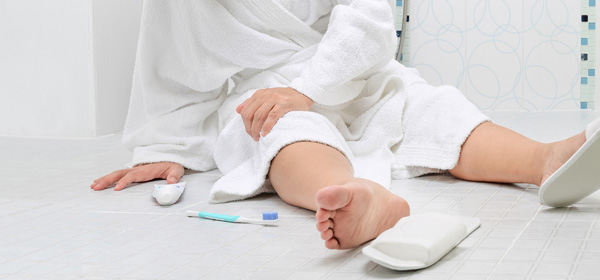Falls are the leading cause of injury-related hospitalisation in people aged 65 years and over, accounting for 14 per cent of emergency admissions and four per cent of all admissions.
Exercising can become harder as we age and mobility can also become an issue. These two factors can then lead to a declining ability to maintain balance and an increased incidence of falls.
Neuroscience Research Australia (NeuRA) is promoting a series of simple exercises that can be done at home to assist with balance management.
Related articles:
Tread with caution
Dancing to prevent breaking bones
Declutter your home
People tend to be less active during the colder months, but the researchers believe that is when it is most important to keep exercising.
University of NSW Associate Professor Kim Delbaere, one of the creators of the Standing Tall exercise program, says falls occur for a number of reasons.
“Falls are often caused by a number of age-related conditions, such as cataracts, reduced balance and muscle strength, or slower reaction times,” she explained. “The good news is that many falls can be prevented by doing a series of simple, in-home exercises designed to improve balance.
“Standing Tall is a home-based exercise program, designed for and with older adults. It offers a variety of tailored and evidence-based exercises, delivered through an iPad.
“Our previous research has taught us that, to prevent falls, older people should exercise for two to three hours per week.
“By embracing technology, we are providing an alternative exercise opportunity, which is engaging, fun and motivating, hoping to generate higher levels of adherence over a longer period of time,” she said.
Professor Stephen Lord, who has undertaken fall prevention research at NeuRA since 1994, says falls are a major contributing factor to people being admitted to nursing homes.
“The major serious injuries that result from falls include head injuries and fractures of the wrist, neck, trunk and hip,” Prof. Lord explains. “Falls can also result in disability, restriction of activity and fear of falling, which can reduce quality of life and independence.”
Watch the five fall protection exercises recommended by NeuRA:

